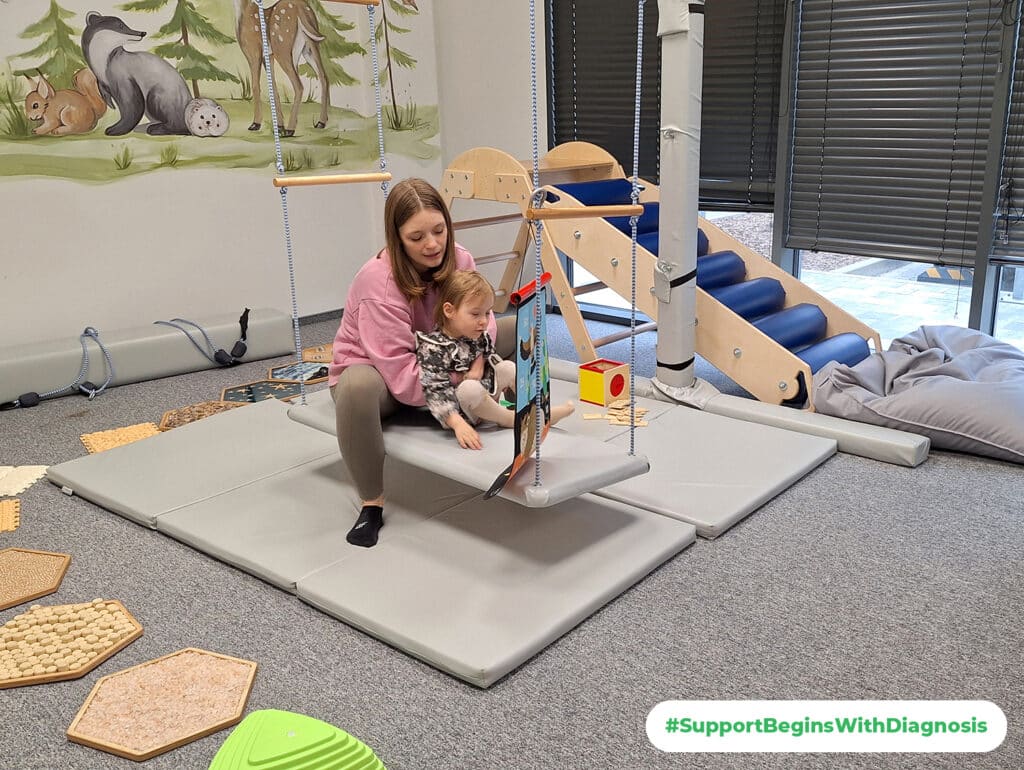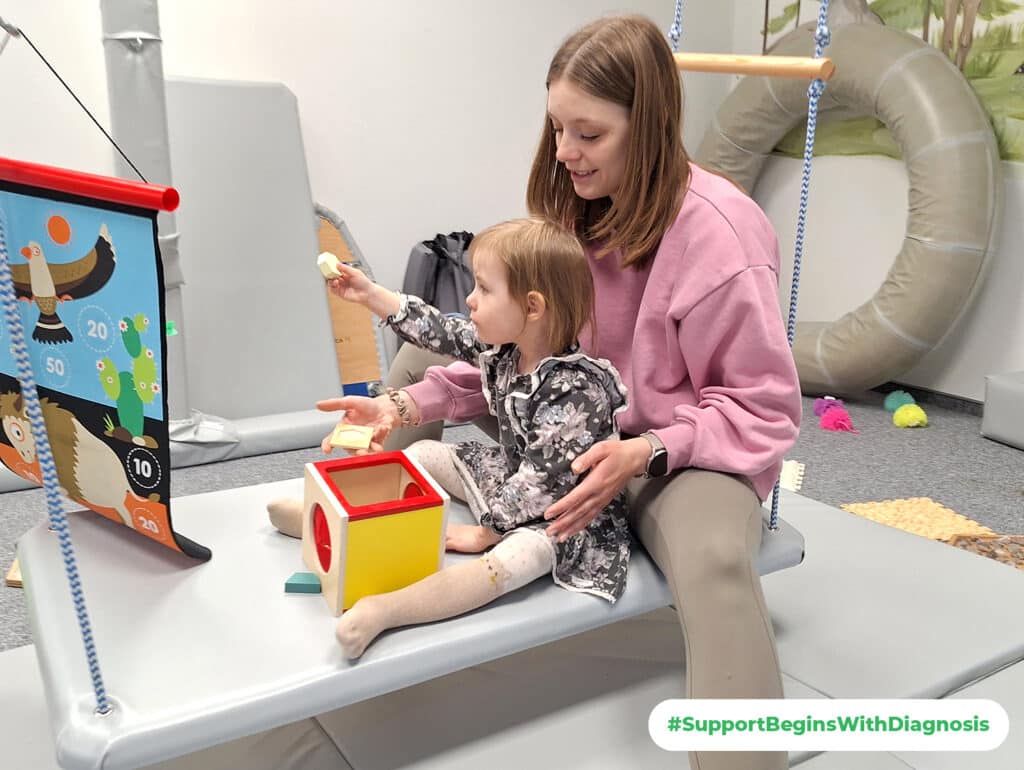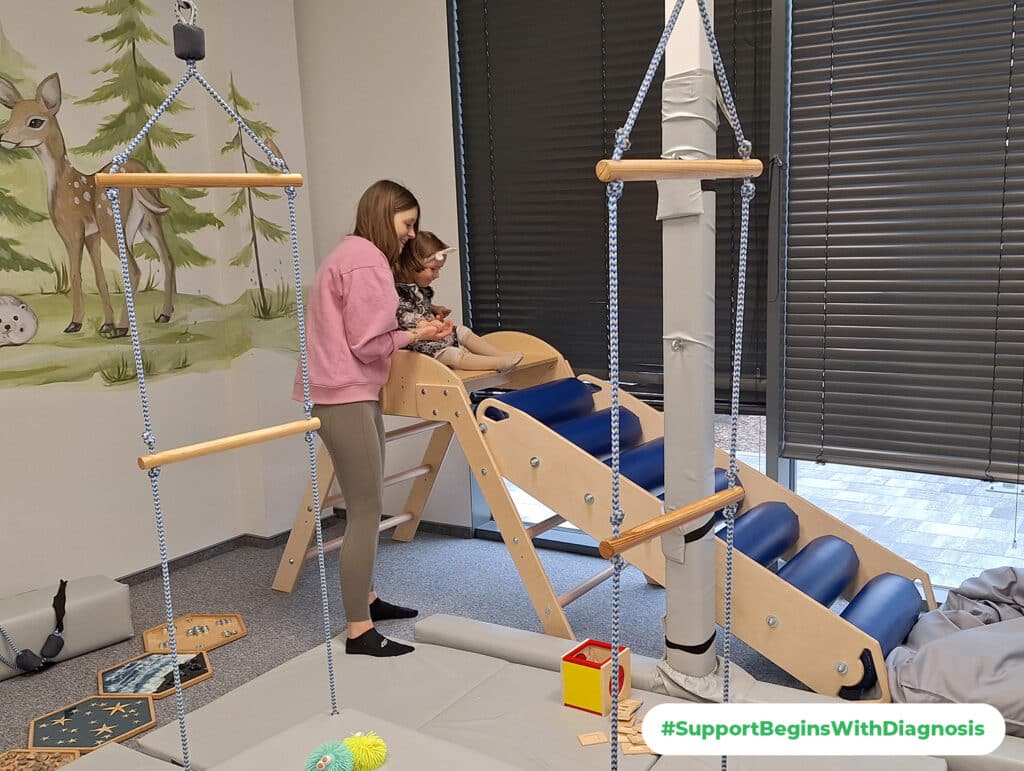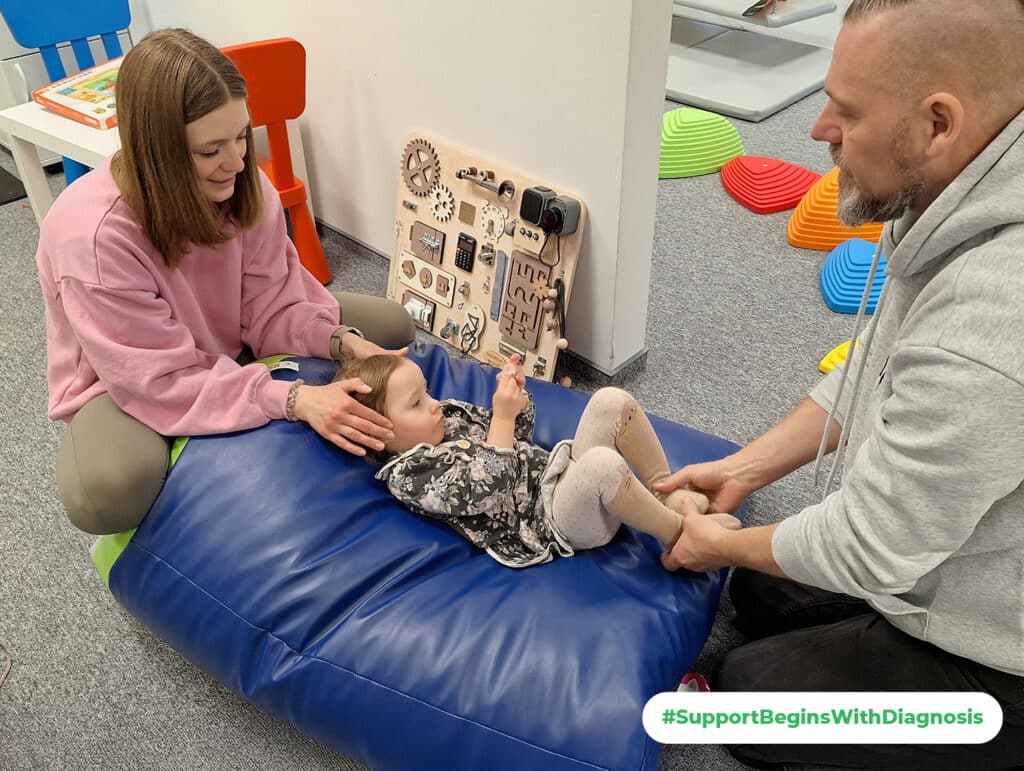Roksanka is one of the children supported by the Hemmersbach Kids’ Family Foundation. Although her life began under very difficult circumstances, today – thanks to consistent support and early intervention – she is a lively little girl making progress every single day. Her journey is a powerful example of the life-changing impact that a proper diagnosis and individualized care can have.

A difficult start
Roksanka was born prematurely with serious health complications. From the very beginning, she faced a range of medical and developmental challenges. After spending two months in the hospital, a court decided she should be placed in foster care.
“Sadly, it took a long time for her to find the right foster family. For us, it was the beginning of an extraordinary journey – full of joy, love, but also real challenges,” shares Kasia, Roksanka’s foster mom.
“From the start, our little girl required intensive care, therapy, and constant support to aid her development. She was so tiny, she didn’t make eye contact, didn’t react to sounds, couldn’t roll over or sit up. Each stage of her development was delayed and demanded an individual approach and consistent work. It was a huge challenge – but also a great responsibility – for us as foster parents.”

Diagnosis – the first step toward change
With support from the Hemmersbach Kids’ Family Foundation, Roksanka was referred to the HKF Child Development Support Center, where she underwent a comprehensive diagnostic evaluation and began early developmental intervention.
“When Roksanka came to HKF Centrum, we felt so much hope,” her foster mom recalls. “Very quickly, it became clear she needed a specialized diagnosis for Sensory Integration difficulties. That helped us truly understand how to support her in everyday life.”
The diagnosis confirmed that Roksanka needed sensory integration therapy – she showed signs of tactile hypersensitivity and problems with balance and motor coordination. With the help of carefully tailored sessions, she is now making incredible progress.

Why does diagnosis matter?
“Roksanka is a wonderful, loving little girl – full of energy and curiosity. She loves to sing, dance and listen to stories. Although at first she avoided touch, today – thanks to months of patient support – she comes to us for hugs on her own.
When she joined our family, physical contact felt foreign to her – something to avoid. Spending half a year in hospital had a profound impact on her sense of safety. Now she is becoming more open every day, and our bond grows stronger with each passing moment,” says her caregiver, Kasia.

The right diagnosis is the first step to truly understanding a child’s needs. It opens the door to effective therapy. It helps caregivers respond with confidence and compassion. And most of all – it helps children like Roksanka feel safe, supported and seen.


